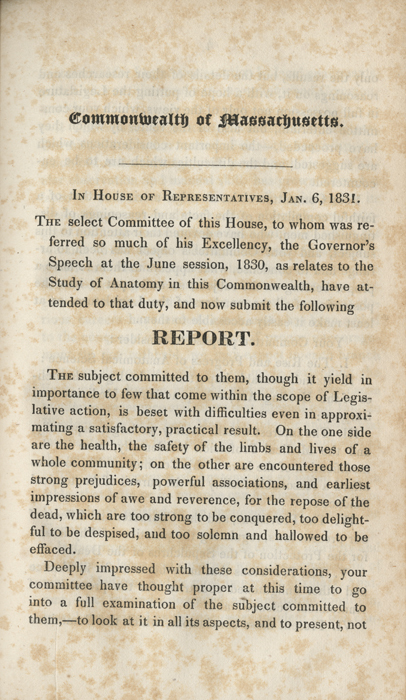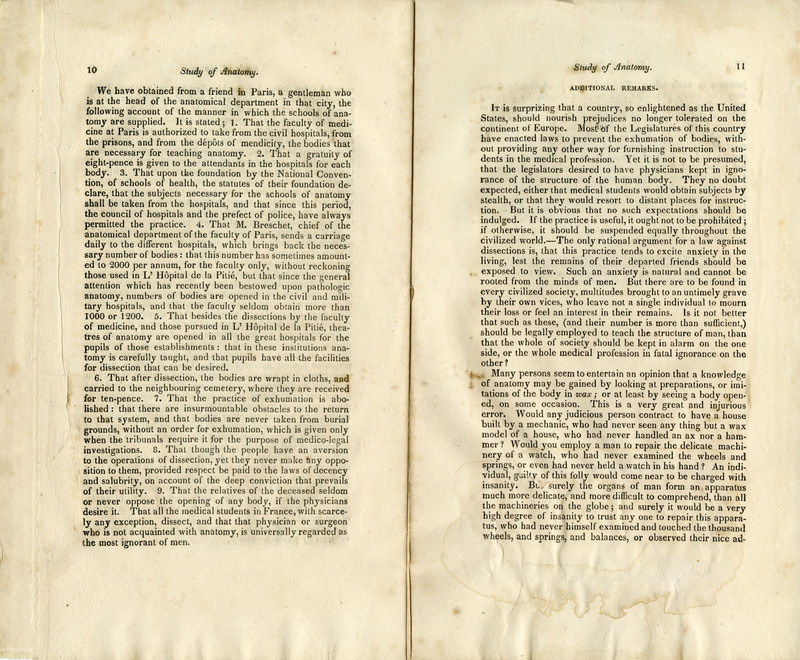The Anatomy Act
As the Medical School grew in size and the number of matriculants increased, additional appointments were made to the faculty. The office of a Demonstrator of Anatomy was created in 1831 to assist with dissections, and Winslow Lewis (1799-1855) was the first to hold it. At this same time, Massachusetts passed the first law to legalize the use of bodies for dissection and anatomical study. Drs. John Collins Warren and Abel Lawrence Peirson (1794-1853) introduced a resolution to the Massachusetts Medical Society to seek such legislation in 1829, and Warren addressed a joint session of the state legislature on the issue on February 2, 1831. Although an important development, the Anatomy Act had some serious flaws which Warren himself noted when it was amended in 1833 and again in 1845—principally that the act was not mandatory, but only discretionary:
The provisions of the Act are in the greater number of instances evaded, and it is an extraordinary fact, that when apparently complied with, the subjects have occasionally undergone previous mutilations, which greatly impaired their usefulness. It has therefore been rendered necessary to seek other sources of supply: distant places have been resorted to, and subjects procured for the schools with great difficulty, and at a great and increasing expense. Such in fact is this expense, as to afford grounds for apprehension, that persons will be found to break the law, and run the risk of violating the feelings of individuals…. There is danger here, that avarice may be stimulated to rob the tombs of the departed without respect to the sympathies of surviving friends.
This pamphlet on anatomy and dissection laws is attributed to English sanitary reformer, Thomas Southwood Smith, who would later perform the anatomical dissection of Jeremy Bentham in 1832. The "additional remarks," included in the reprinting of the pamphlet in Boston, urges the proper study of human anatomy by dissection, and adds, "The number of medical students in Boston the last season was about one hundred and thirty. If anatomy could not be learnt at home more than one hundred of these students would remain ignorant, for want of means to go to foreign countries. What miseries would their ignorance produce!" Thomas Dwight noted on this copy that he believed it likely his grandfather, John Collins Warren, was responsible for the addition.


